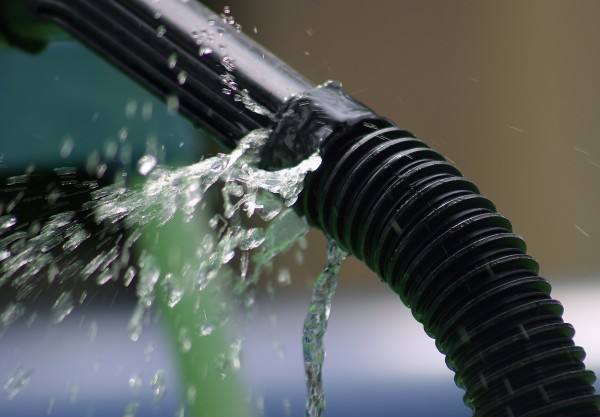Let’s face it – busted water pipes are a nightmare for any homeowner, particularly if you don’t even realize it or you can’t seem to find the leakage. That’s especially true if the leak is in the basement or near the foundation, as it can damage the structure of the whole building.
What’s particularly tricky about pipe damage is that you won’t always know that there is any damage. Pipes work quietly and, even if damaged, it may take a long time before you even realize there’s a problem. You may feel some dampness in the basement, or an unusual puddle on the lawn, or the faucet may be faulty, but many homeowners simply don’t know that there might be a more serious issue with the piping.
Sometimes, a burst pipe can leak for hours on end before anyone discovers the damage. Catching it early is key to preventing further damage to your home and will prevent you from those costly and time-consuming repairs.

Let’s see which are some of the best ways to tell a pipe has burst:
1. Listen and watch closely
Dripping water, dampness and mold growth are the prime indicators that something is wrong with the pipe system inside your home. A well-kept pipe system will work flawlessly and the dampness will be minimal, even in the basement. Listen to dripping water around the house: in your bathroom, kitchen or utility room.
Go regularly to your basement where water pipes often leak to and check the ceiling. If there is any sign of dampness or mold, contact a plumber or a piping expert as soon as possible.
2. Watch the faucets
Some dripping for faucets is normal, but when the dripping lasts for more than 10 seconds, there might be internal damage to your pipes. This is especially true when it comes to outdoor fixtures and faucets, where freezing is more common. Also, keep in mind that faucets are complex mechanical devices and cracks, leaks and fissures can occur unexpectedly.
3. Check out the garage and crawlspaces
Generally, the garage and the crawlspaces are unheated in most American homes, meaning that the pipes are prone to damage caused by freezing, excessive winds or other weather patterns. Also, these pipes are almost always hidden and difficult to check at regular intervals, so make sure you use a flashlight if necessary. Try to check on these pipes at least twice a year to make sure they are working properly.
4. Run the faucets and fixtures
When a pipe has burst the flow is compromised across the whole pipe system. Running a faucet at maximum setting will help you determine whether there is any water pressure problem caused by leakage. If the water flows slower than normal, check your other faucets and fixtures and call an expert as soon as possible. Similarly, if the hot water takes an unusually long time to warm up, you may have a burst pipe near the heater.
5. Read the water meter
A skyrocketing water bill may be the only sign some homeowners may get when their pipes are burst. If this is the case, turn off your faucets, fixtures, and other devices that use water and see whether the water dials are still turning. If they are, it means that there is a burst pipe on your property which has leakage.
Try to locate the damage as quickly as possible, because all the water will be billed by your water company. In extreme cases, you should call the water company to shut down your water completely and contact an expert, such as the experts at A1 Service Plumbing, to deal with the situation.
Flaviu Mircea is a freelance writer and entrepenuer who contributes articles and insight into home imporvements.
